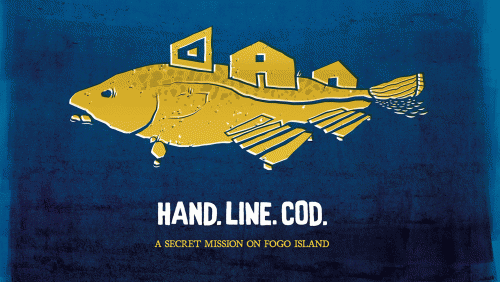
Set in the coldest waters surrounding Newfoundland’s rugged Fogo Island, Justin Simms’ short film HAND.LINE.COD follows a group of “people of the fish”—traditional fishers who catch cod live by hand, by hook and line, one at a time. Their secret mission? To drive up the price of fish. After a 20-year moratorium on North Atlantic cod, the stocks are returning. These fishers are leading a revolution in sustainability, taking their premium product directly to the commercial market for the first time.
Simms takes viewers deep inside the world of the brave fishers returning to past methods that hold tremendous potential for the future. Travel with them from the early morning hours, spend time on the ocean, and witness the intricacies of a 500-year-old tradition that’s making a comeback.
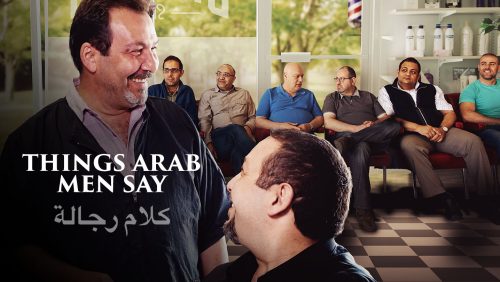
Worldwide, Arab men are depicted by the mainstream media as terrorists, suicide bombers, or at best, extremists. In Things Arab Men Say, Egyptian-born filmmaker Nisreen Baker paints a very different picture.
Join Jay, Ghassan, and their friends as they gather at Jamal’s Eden Barber Shop for a haircut, a shave, and a lively discussion on politics, religion and identity. Although located in St. Albert, an Edmonton suburb, Jamal’s shop could be anywhere, serving as a microcosm of the Arab community.
At times serious, but laced with deft humor, the film follows the group as they debate the issues at hand and express often-surprising views that bring us closer to changing the narrative surrounding their community.
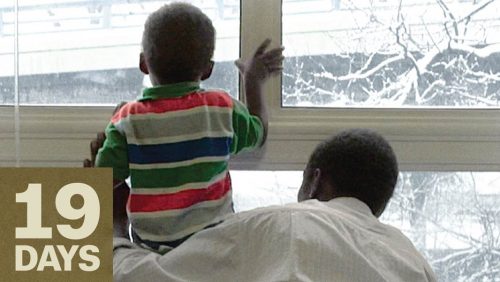
Directed by Somali-Canadian filmmakers Asha and Roda Siad, this short documentary follows several refugee families during their first 19 days in Canada, as they navigate an unfamiliar terrain that has suddenly become their home. A unique look at the global migration crisis and one particular stage of asylum, the film reveals the human side of the refugee resettlement process and lays plain the realities faced on the difficult road towards integration.
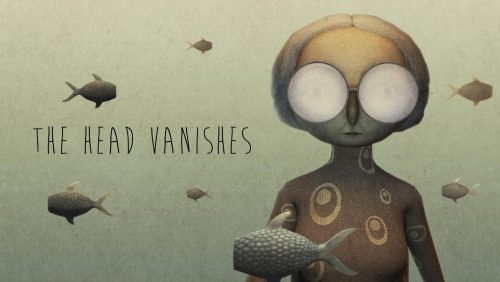
Jacqueline isn’t quite in her right mind anymore, but she’s determined to take the train to the seaside, as she does every summer. Only this year, she’s constantly being followed by some woman who claims to be her daughter, and the trip takes some unexpected, phantasmagorical turns.
Franck Dion’s gentle, poetic film invites us to share the journey of an elderly woman living with degenerative dementia, as her confused mind leaves her open to danger.
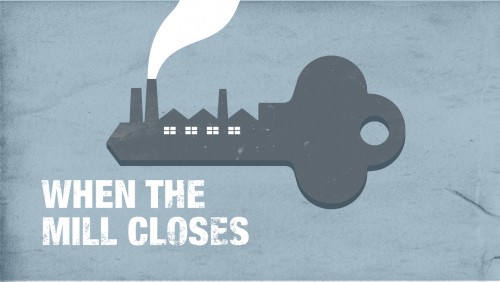
For decades, the pulp and paper industry was the jewel in the crown of Canada’s economy. Today, with so many mills closing down, what future is there for the forestry communities that sprang up and prospered around them? Through lucid, inspired testimonials by former workers, this film delves into the industry’s glorious past and gauges the true impact of mill closings on local populations and on the way the forest is managed.
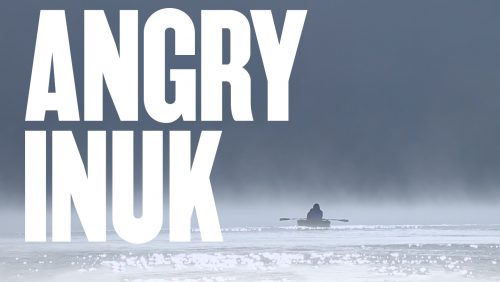
Seal hunting, a critical part of Inuit life, has been controversial for a long time. Now, a new generation of Inuit, armed with social media and their own sense of humour and justice, are challenging the anti-sealing groups and bringing their own voices into the conversation. Director Alethea Arnaquq-Baril joins her fellow Inuit activists as they challenge outdated perceptions of Inuit and present themselves to the world as a modern people in dire need of a sustainable economy.
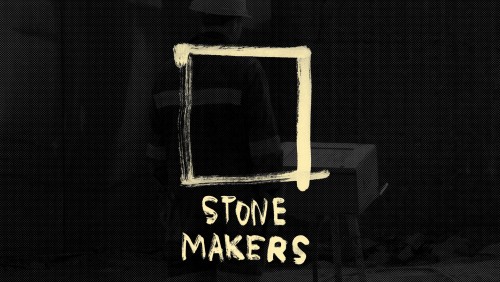
A routine workday in a granite quarry turns surreptitiously into a captivating industrial symphony. While men work in the background, different equipment and machines perform for the camera as if they are individual dancers in a contemporary ballet.
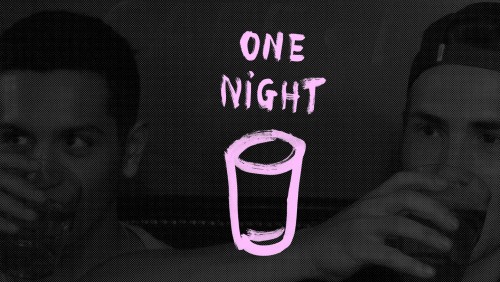
A night in a bar like any other… Deftly capturing furtive glances, moments of euphoria and awkward situations, Serge Bordeleau blends tools borrowed from fiction filmmaking with documentary observation to construct a gallery of characters who provide undeniable proof that every night holds a myriad potential stories.
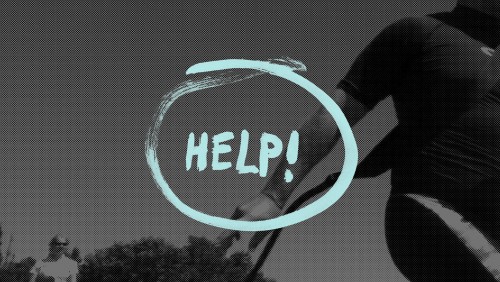
Lifeguards run down the beach and dive into the ocean to save swimmers from drowning. These dramatic rescues are captured by a hyperactive, spinning camera that becomes one with the elements and challenges how subjective a documentary may be.
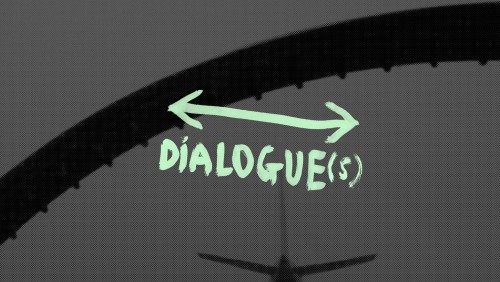
Air force pilots, a heavy metal band and two fans of modified cars are the unlikely focus of a deadpan film essay on language. Through a clever, unpredictable edit, Philippe David Gagné takes great delight in revealing the strange ways that men communicate.
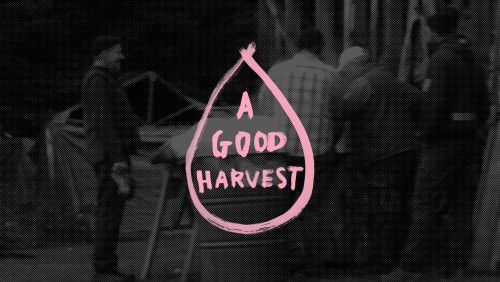
In a rural setting, the bleeding of a pig is depicted plainly, as an autumn ritual. A just and moving tribute to the handing down of actions that, shared across families and generations, also perpetuate true social solidarity.
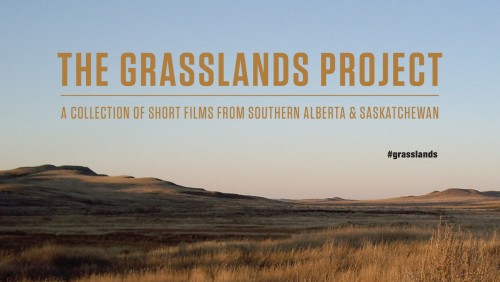
The southern Prairies are among the most accessible, but also the least known, of all the regions in Canada. The rolling hills and waving grasses, the small towns and family farms, the bake sales and fall suppers are all there. The winters are cold, the summers hot; and everything sometimes seems a thousand miles away. It is a land of many stories, and a new collection of films from the National Film Board of Canada brings some of these stories to audiences across the nation and around the world.
In the summer of 2015, filmmaker Scott Parker travelled to this region to produce 10 short documentaries based on community-generated ideas. Subjects, themes, even interview questions were all conceived with significant community input, and each film was screened with the participants to get their feedback and final approval. Each doc is a beautiful portrait of prairie life.
The Grasslands Project, as it became known, was conceived and designed by Parker in concert with NFB Executive Producer David Christensen. Parker then travelled to the area, headquartered himself in the small Saskatchewan town of Eastend and began the extensive community engagement the project would require if it was to be successful either cinematically or as an outreach action.
As Parker was the point man of this engagement, it was decided he would also be the only filmmaker creating the 10 short documentaries. Over several weeks, he managed to form strong, trusting relationships with many people who would be instrumental in making the films, so the NFB team organized a camera and sound package uniquely suited to a single filmmaker operating in the field, and an edit suite was set up in Eastend. Parker would live in the town for six months while shooting and editing the films, and he spent about two months living out of his “mobile production unit.”
In addition to the 10 short films, The Grasslands Project aimed to hold 10 community media workshops across the south; in the end, due to popular demand, 12 were held. Participants included journalists, librarians, historians, prospective actors, Indigenous youth, agriculture insiders, bloggers, youth with complex physical disabilities, teachers, students, and federal inmates. Parker developed and led each and every one of the workshops. The project was fortunate to team up with local folklorist and writer Kristin Catherwood, who was instrumental in clarifying the ideals behind it and helping workshop participants understand the relationship between place and story.
There is power in people telling their own stories back to themselves, and while not all the workshops had a profound outcome, many did. They not only provided people with the fundamentals of making their own short films but also demonstrated the power of story and film.
And film indeed has power. The finished documentaries are rough and unprofessional, but, to the participants, both the process and product were transformative.
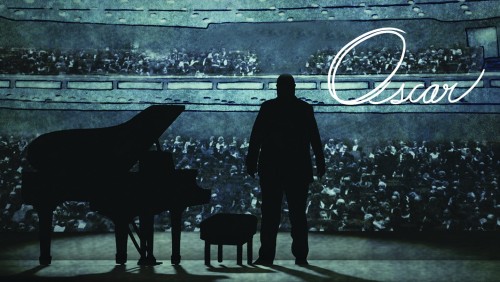
Mixing animated sequences and archival footage, Oscar is a touching portrait of virtuoso pianist Oscar Peterson at the twilight of an exceptional career, as he wistfully meditates on the price of fame and the impacts of the artist’s life on family life.
From the young prodigy’s beginnings in Little Burgundy to his triumphs on the international scene, this animated documentary by Marie-Josée Saint-Pierre explores the profound solitude of an artist constantly on tour. Set to the tunes of Peterson’s sometimes catchy, sometimes melancholy-tinged compositions, the film tells a heartfelt story about a life in jazz.